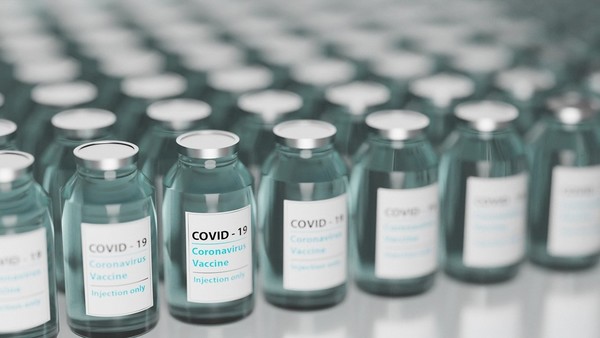Korea's 159 vaccine-related companies attained combined sales of 3.4 trillion won ($2.63 billion) and an export amount of 628.7 billion won last year.
On Tuesday, the Ministry of Health and Welfare and the Ministry of Trade, Industry and Energy announced a report titled “Fact-finding survey of the domestic vaccine industry in 2021,” including the companies’ domestic sales, export, investment, and employment. It was the first opinion poll exclusively on the vaccine industry.
The 159 companies comprised finished vaccine product makers (29.6 percent), makers of raw and subsidiary materials (32.1 percent), equipment makers (15.1 percent), and vaccine-related service providers (35.8 percent).

Some of them were engaged in more than one business line.
The total also included five large enterprises (3.1 percent), 42 medium-large companies (26.4 percent), and 112 small firms, including startups (70.4 percent). Compared to the all-industry composition, the share of medium-large companies was higher among vaccine businesses.
Large enterprises account for only 0.1 percent of the total Korean businesses, and medium-large companies take up 0.4 percent, with small firms and startups accounting for the other 99.5 percent.
Based on paid-in capital, those set up by purely Korean capital numbered 143, or 90 percent of the total. Eight (5 percent) were founded by foreign capital, and another eight (5 percent) were joint ventures.
The domestic turnover of the vaccine industry totaled 3.417 trillion won, which, in turn, broke down into 2.686 trillion won from finished vaccine products, 86.5 billion won from raw and subsidiary materials, 69.4 billion won from vaccine equipment, and 636.1 billion won from vaccine-related service provision.
Exports totaled 628.7 billion won, breaking into 563.7 billion won in finished products, 141 billion won in raw and subsidiary materials, 43 billion won in equipment, and 76.3 billion won in vaccine services.
Investments into the vaccine industry totaled 331.4 billion won -- 214 billion won in research and development costs and 117.4 billion won in plants and equipment.
Considering that the ongoing and planned corporate investment by vaccine and bio companies exceeds 13 trillion won or more, according to the government’s bio-health industry innovation plan, the annual facility investment is expected to expand gradually.
Concerning employment, the 159 companies hired 44,312 workers, and 10,758 were engaged in vaccine-related departments.
By occupation, 4,715 (43.8 percent) were manufacturing workers, 2,722 (25.8 percent) were researchers, and 3,271 (30.4 percent) were sales agents or administrators.
As difficulties the companies experienced, 42.7 percent of respondents cited the lack of R&D funds, 25.2 percent complained about the shortage of expert personnel, and 22.0 percent pointed to the lack of infrastructure, such as research equipment.
Concerning regulation-related grievances, 62.3 percent cited the approval and permission procedures of the Ministry of Food and Drug Safety, followed by 37.1 percent who cited clinical trials, 28.3 percent who cited the national shipment system, and 25.2 percent who pointed to the public bidding system for national vaccination programs conducted by the Korea Disease Control and Prevention Agency.
To help the vaccine industry develop into a solid flagship sector that leads the bio-industry, the government plans to scale up corporate sizes, provide interagency support according to their growth cycle, and offer customized and uninterrupted support from development to manufacturing and export, the ministries said.
Besides, it will seek to resolve permission and licensing regulations by operating a corporate grievance settlement center under the interagency team to make Korea a global vaccine hub, they said.

